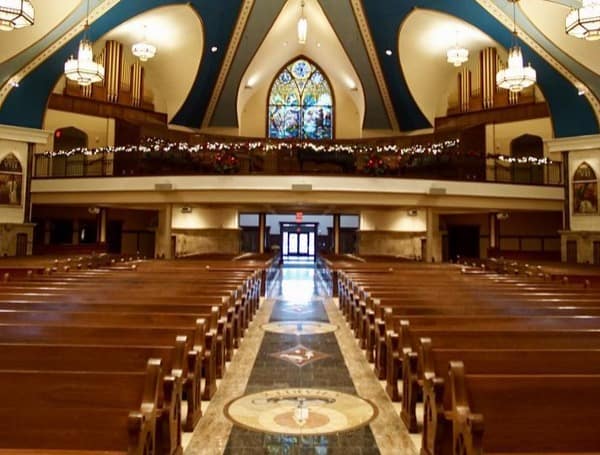In his famous 1798 letter to the Massachusetts militia, John Adams noted, “Our Constitution was made only for a moral and religious people. It is wholly inadequate to the government of any other.
A new Gallup poll suggests we may soon learn whether Adams was right as the cultural rot unfolding before us continues to metastasize.
The poll, released Monday, found that for the first time in more than 80 years a majority admitted they do not belong to a church.
Gallup noted, “Americans’ membership in houses of worship continued to decline last year, dropping below 50% for the first time in Gallup’s eight-decade trend. In 2020, 47% of Americans said they belonged to a church, synagogue or mosque, down from 50% in 2018 and 70% in 1999.”
Other News, Poll: Cancel Culture Has Nearly Two-Thirds of Americans Ducking and Covering
“U.S. church membership was 73% when Gallup first measured it in 1937 and remained near 70% for the next six decades, before beginning a steady decline around the turn of the 21st century.”
The survey indicated the issue is that Americans are increasingly unmoored from a specific faith.
In other words, church membership has declined as the number of Americans who assert no religious preference rises. Church membership is down 23 percentage points over the last two decades, while at the same time, the number who claim no specific denomination has nearly tripled, from 8 percent to 21 percent.
Gallup also pointed out, though, Americans who do claim a religious “preference” also are not opting for a specific faith. The ratio of people in that who belong to a church, synagogue, or mosque has dropped from 73 percent in 2000 to 60 percent now.
Demographics is one key factor.
Two of every three born in the generation that parented the Baby Boomers belong to a church. For Millennials and Gen Z, it’s just 36 percent, Gallup reports.
“The decline in church membership, then, appears largely tied to population change, with those in older generations who were likely to be church members being replaced in the U.S. adult population with people in younger generations who are less likely to belong.”
Beyond demographics, the church itself may be an issue. The ranks of Roman Catholics have thinned by 18 percent in recent years, compared to just 9 percent for Protestants, which may not be surprising, given the Catholic Church’s two-decade battle with clergy sex-abuse scandals.
But Gallup also suggested politics plays a role.
In short, white liberals are abandoning churches.
“In addition to Protestants, declines in church membership are proportionately smaller among political conservatives, Republicans, married adults, and college graduates. These groups tend to have among the highest rates of church membership, along with Southern residents and non-Hispanic Black adults.”
“Over the past two decades, declines in church membership have been greater among Eastern residents and Democrats,” Gallup reported.
“Still, political independents have lower rates of church membership than Democrats do.”
So what does it mean?
Without a reversal, religion will continue to fade into the background of American life.
“The U.S. remains a religious nation, with more than seven in 10 affiliating with some type of organized religion. However, far fewer, now less than half, have a formal membership with a specific house of worship,” Gallup stated.
“While it is possible that part of the decline seen in 2020 was temporary and related to the coronavirus pandemic, continued decline in future decades seems inevitable, given the much lower levels of religiosity and church membership among younger versus older generations of adults.’
The upshot: “Churches are only as strong as their membership and are dependent on their members for financial support and service to keep operating. Because it is unlikely that people who do not have a religious preference will become church members, the challenge for church leaders is to encourage those who do affiliate with a specific faith to become formal, and active, church members.”
The late Andrew Breitbart popularized the saying that culture is upstream of politics.
Without change, we will see many Americans, especially from the left, demand that government fill the vacuum created by the absence of religion and likely demand changes that will be more yoked to man’s vision of the world, rather than one that relies on a higher power.
Support journalism by clicking here to our gofundme or sign up for our free newsletter by clicking here.
